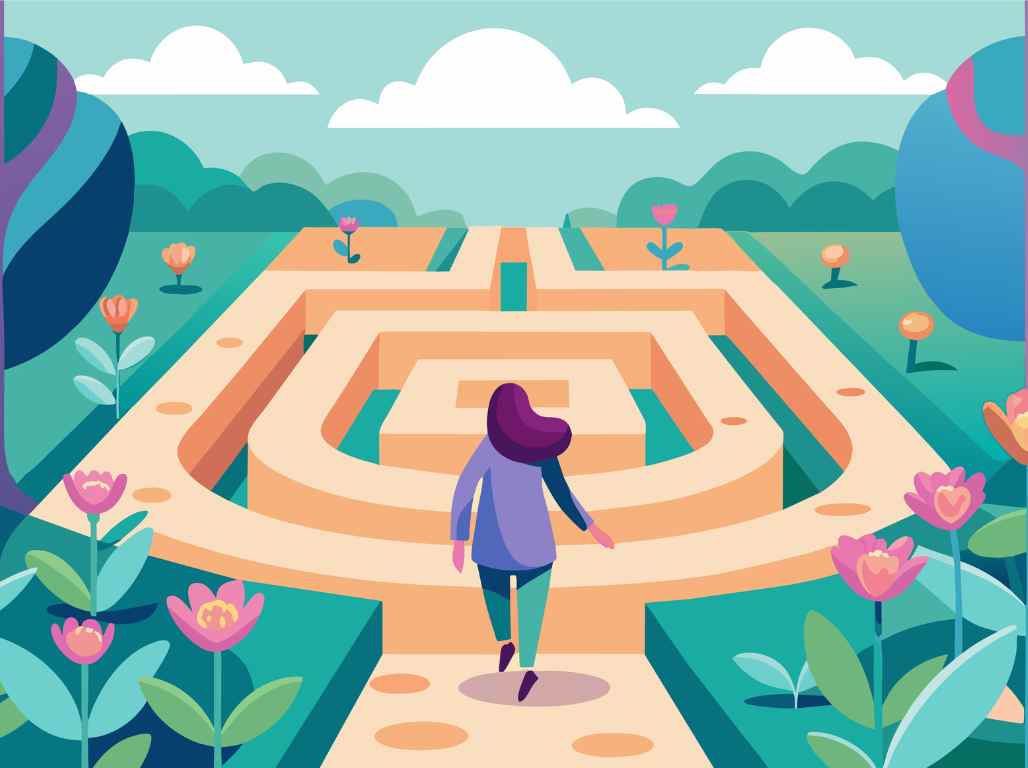TL;DR: Drinking as a trauma response is more common than most people realize. In this powerful story, Janie shares how alcohol became her way of coping with buried pain, why traditional recovery paths didn’t work for her, and how discovering This Naked Mind finally gave her lasting freedom.
⚠️ Trigger Warning: This post discusses trauma, sexual abuse, self-harm, and drinking as a trauma response. Please take care while reading and skip this story if it may be triggering for you.
Have you ever wondered why some people turn to alcohol during their darkest moments? For many, drinking as a trauma response becomes an automatic coping mechanism that promises relief but delivers only deeper pain. Janie’s story reveals the complex relationship between unresolved trauma and alcohol dependency, and more importantly, how understanding the true nature of alcohol can set you free—even when traditional recovery methods have failed.

From Sobriety to Social Drinking
I never grew up around alcohol. My parents didn’t drink, and I was completely opposed to it throughout my childhood and teenage years. I was so straight-laced that when I got to college, I refused to drink until my 21st birthday because it was illegal. The only exposure I had was watching my brother throw crazy parties in our basement when our parents were out of town, and I did my best to stay far away from those situations.
My relationship with alcohol began innocently enough after I got married. I started drinking socially, nothing that seemed problematic or concerning. It was just what married couples did at dinner parties and social gatherings. For years, alcohol remained a minor part of my life—until trauma struck and everything changed.
When Life Shattered: The First Crack in My Foundation
The first traumatic experience that sent me spiraling occurred when our oldest son was arrested for drug possession. We had no idea he was using drugs, though we knew he was hanging around the wrong crowd. The short version is that he disappeared for several days, and I was frantic with worry. When I finally discovered his whereabouts, it was because he called me from jail.
My heart was absolutely crushed. The pain was unbearable, and I found myself reaching for wine to numb the overwhelming emotions. This was the beginning of my journey with drinking as a trauma response, though I didn’t recognize it at the time. I just knew that alcohol made the crushing weight of disappointment and fear more bearable.
The Flashback That Changed Everything
The second experience that deepened my reliance on alcohol happened during a business trip. After a long meeting, everyone gathered in the hotel bar for drinks, including me. A co-worker approached to say hello, and his breath was heavy with whiskey. At that moment, something unprecedented happened—I had a vicious flashback that hit me like a freight train.
I had been sexually abused by a relative for many years during my childhood, but I had buried those memories so deep in my subconscious that they had remained hidden for decades. But that night, with the smell of whiskey triggering something primal and terrifying, it all came flooding back with devastating clarity.
The Descent into Darkness
When I returned home from that business trip, a doctor recommended that I attend a treatment center. I spent eight days there, but when I returned home and went back to work, I didn’t seek ongoing therapy for my trauma. Instead, I turned to what I thought was helping—alcohol became my primary coping mechanism for dealing with the resurfaced memories and the pain they brought.
My evening routine became disturbingly predictable: I would come home and drink an entire bottle of wine. Once everyone was in bed and the house was quiet, I began cutting myself. This destructive cycle of drinking as a trauma response, combined with self-harm, continued for a couple of years. I was drowning in pain and using the only tools I thought I had available to survive each day.
Failed Attempts at Traditional Recovery
Before discovering This Naked Mind, I tried to “fix” my problems with AA, and that was a mistake. While AA does help some people achieve and maintain sobriety, it only made me feel worse about myself. I have an educated, logical mind, and knowing that the “science” of AA was outdated and its teachings hadn’t been updated for today’s culture really bothered me.
During the summer of 2020, I was drinking harder than ever and self-harming regularly. Desperate for help, I decided to go to rehab for 30 days. Unfortunately, I believe it damaged me more than AA had. Before going, I specifically asked the admissions person if they offered anything besides AA-based treatment. They assured me they did, but when I arrived, they required attendance at AA meetings on campus. When I complained, they simply placed some papers about SMART Recovery on my bed.
The Rehab Experience That Nearly Broke Me
The man in charge of the program met individually with all new arrivals. When I explained that I had tried several AA meetings in the past without success, he called me a liar. He didn’t believe I had ever attended a meeting. When I shared that I had been diagnosed with PTSD due to my childhood trauma, he again called me a liar.
It’s a miracle I didn’t leave right then, but I was desperate for help. In the end, rehab did provide some benefits—I connected with other women in similar situations who remain friends to this day, and I was away from alcohol for 30 days. However, these benefits didn’t last long, and I was back to drinking again shortly after returning home.
Discovering This Naked Mind: The Game Changer
Then I heard about This Naked Mind. I can’t remember exactly how I first learned about it, but I downloaded the audiobook sometime in 2020, and it literally changed my life. I’ve listened to it many times since, and I can’t express how profoundly this book transformed my understanding of alcohol and addiction.
After listening, I wanted to tell everyone I knew about the dangers of alcohol. I wanted people to understand that anyone can become addicted to alcohol and that I wasn’t weak or biologically flawed. I had so many revelations I wanted to share that I totally became that person on my soapbox all the time—but for good reason.
Ready to Start Your Journey?
If Janie’s story resonates with you, you’re not alone. Understanding the true nature of alcohol and how it affects our brains and bodies is the first step toward freedom. Whether you’re using drinking as a trauma response or simply want to explore your relationship with alcohol, knowledge is power. Download the first 40 pages of This Naked Mind now to start your journey!
The Life-Changing Revelations
This Naked Mind helped me understand so many things I wish I had known sooner. All the things you hear others discuss became crystal clear to me: the dangers of alcohol and its negative effects on the body, mind, and society. Most importantly, I learned that there was nothing wrong with me for having fallen prey to alcohol’s trap.
I’m not an alcoholic in the traditional sense that society defines it. I’m not physically flawed or more prone to alcohol addiction than anyone else. The book helped me understand that my drinking as a trauma response was a logical reaction to pain, given what I knew about alcohol at the time. Most significantly, it helped me steer clear of alcohol because I no longer wanted to put that poison in my body.
The Path to Lasting Freedom
I’ll admit that I slipped several times in the past. I would listen to the audiobook, think I was done with alcohol, but then slide back down. I’d listen again and slide back down once more. But just a couple of months ago, I listened again, and I am finally DONE with alcohol.
My family has noticed a significant change in my moods and outlook. My health has improved dramatically. I feel ready to get up and face each day with energy and purpose. I’m making a point of getting out to make new friends—I was so isolated in the past, but now I’m actively building connections and relationships.

Life Begins at 60
I am 60 years old, but I’m more excited about the future than I’ve ever been because I have more motivation than ever to pursue things I’ve always wanted to do. I genuinely feel like my life is just beginning, which is incredible considering how dark things were just a short time ago.
The best part of all is that I’m no longer hurting myself or my family. The cutting has stopped, the wine bottles are gone, and the shame that followed me for years has been replaced with understanding and self-compassion.
A Message to My Past Self

If I could tell my old self one thing, it would be this: forgive yourself. As Annie said on a recent podcast, “Is it really a choice if we don’t have all of the information?” I’m willing to bet I would never have begun drinking at all if I had all the facts about alcohol back then.
My story isn’t unique—many people use drinking as a trauma response without understanding what they’re really doing to themselves. The key is education, understanding, and self-compassion rather than shame and traditional recovery methods that often fail to address the root causes of our pain.
Share Your Story
Did you stop drinking as a trauma response with our books, the app, the podcasts, or another program at This Naked Mind? We want you to share your story here and inspire others on their journey!
Copyright © 2025 This Naked Mind. This material is original content and is protected by international copyright laws. Unauthorized reproduction or distribution of this content will be met with legal action.



